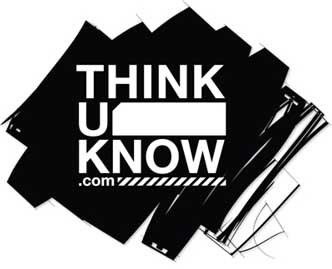Online Safety


Thinkuknow
We think that the best resources for students, parents, carers, staff and anyone else who wants to know more about e-safety are provided by Thinkuknow.
If you would like to make use of their resources, please click here.
CEOP
CEOP stands for Child Exploitation and Online Protection. This is a national agency who work hard to protect children and young people from the dangers posed by online activity.
If you have a concern that someone has done something online that has made you or a child or young person you know, feel worried or unsafe you can make a report to CEOP via the icon at the bottom of our webpage.
Further information about CEOP and access to their resources can be obtained by clicking here.
At Summerhill School we use technology and the Internet extensively across all areas of the curriculum. Online safety, sometimes also known as e-safety is an area that is constantly evolving and as such we hope that this page provides useful information for parents and carers.
Advice and Guidance for Parents and Carers
The following advice and guidance is provided in association with Childnet.
The internet - always changing
Keeping up to date with children’s use of technology is challenging for many adults. It can be hard to supervise what young people are viewing and creating online, who they are chatting to and texting, and what they are downloading.
Many children may have better technical skills than you; however they still need advice and protection when using internet and mobile technologies.
This page is designed to help you to understand online safety issues and give you practical advice as you talk to your children so they can get the most out of the internet and use it positively and safely.
So what are the risks?
The risks for children when using the internet and mobile phones include inappropriate:
CONTACT: Potential contact from someone online who may wish to bully or abuse them.
It is important for children to remember that online friends may not be who they say they are, no matter how long they have been talking to them or how friendly they seem. Children must keep personal details private and agree not to meet unsupervised with anyone they have only contacted via the internet. It’s also important that you discuss with your child who they can report inappropriate conversations to and how.
CONTENT: Inappropriate material is available to children online.
Consider using filtering software and agree ground rules about what services you are happy for your children to use. Give them strategies for dealing with any content they are not comfortable with – such as turning off the computer screen. There can also be legal consequences of copying copyrighted content. Young people need to be aware that plagiarising content and downloading copyrighted material without the author’s permission is illegal.
COMMERCIALISM: Young people’s privacy can be invaded by aggressive advertising and marketing schemes.
Encourage your children to keep their personal information private, learn how to delete pop-ups and block spam emails, and use a family email address when filling in online forms.
Can’t I just use a filter?
Filtering and monitoring software can help to block a lot of inappropriate material but they are not 100% effective and are no substitute for adult involvement and supervision.
For more advice see:
Social networking and blogging
Social networking sites or blogs are places online where young people can create personalised web-pages in order to express themselves and share ideas and opinions with others. The sites enable them to meet and socialise online by linking to other sites and therefore create an environment for the whole of their social network to easily exchange information and chat.
What are the risks?
Personal information and contact details can be contained in a profile or could be disclosed during online conversations. Such information can lead to children and their social network receiving unwanted contact from inappropriate people. Children can also post comments or images of themselves or others online, which may compromise their or their friends’ safety or be used as a means to bully others.
What can you do?
Learn from and teach children how to use these applications responsibly. Check the privacy preferences available and insist children make their blogs accessible only to people known offline. Encourage young people to keep their personal information to a minimum and think very carefully before including a personal photograph of themselves or their friends in their profile. Photos online can easily be copied, changed and used elsewhere, and can potentially stay online forever.
For further information visit: www.childnet-int.org/blogsafety
Downloading, P2P and File-sharing
What is Peer-2-Peer (P2P)?
A file-sharing network enables people to exchange photos, videos, music, software and games directly between computers, by downloading P2P software.
Is it legal?
People who download or upload copyrighted material online without the author’s permission are breaking the law. You can legally download by going to websites where this permission to share files has been given.
What are the privacy and security risks?
Your computer is at risk from spyware, viruses and other invasive programmes if you are sharing files on non-regulated sites. Protect your computer and personal files by visiting reputable sites and by installing a firewall and anti-virus software.
What about inappropriate content and contact?
File sharing networks are the least regulated part of the internet. They can contain pornography and inappropriate content, often in files with misleading names. Direct children to legal downloading sites to reduce this risk.
For further information visit: www.childnet-int.org/music
The internet on mobile phones
The issues about being safe online apply equally to mobile phones, especially as most phones now have internet access. Whilst there are opportunities in terms of communication, interaction and entertainment in young people having mobile phones, children can be at risk of accessing and distributing inappropriate content and images and talking to strangers away from your supervision.
Children can receive abusive text messages, be vulnerable to commercial mobile phone pressures and run up large phone bills. It is very important to encourage your children not to give out their mobile numbers to strangers either online or in real life and help them to use their mobile safely and responsibly.
Top Tips For Internet Searches
The internet is the biggest library in the world. You can find almost anything you want to, from TV shows to sports results and homework help online. Carry on reading to get some top tips on how to search online and get SMART results.
- Be clear in your online searches try to use more than one word to describe what you are searching for. For example, if you are searching for information on the planet Mercury, entering ‘planet mercury’ into the search box will better results than just entering ‘Mercury’.)
- Take care to spell correctly when typing in a search. Even a small typing error can bring up unwanted results.
- Remember that not all the information in websites returned in searches is reliable. Look in books, ask people who might know, and look up at least three other websites to check your info.
- Make sure you filter your searches online – especially if you are doing an image search.
- Bookmark your favourite websites or check your history to make sure you are revisiting the same websites.
- If you see something that upsets you, make sure you turn off the screen or make the window smaller on a laptop and tell an adult as soon as possible.





